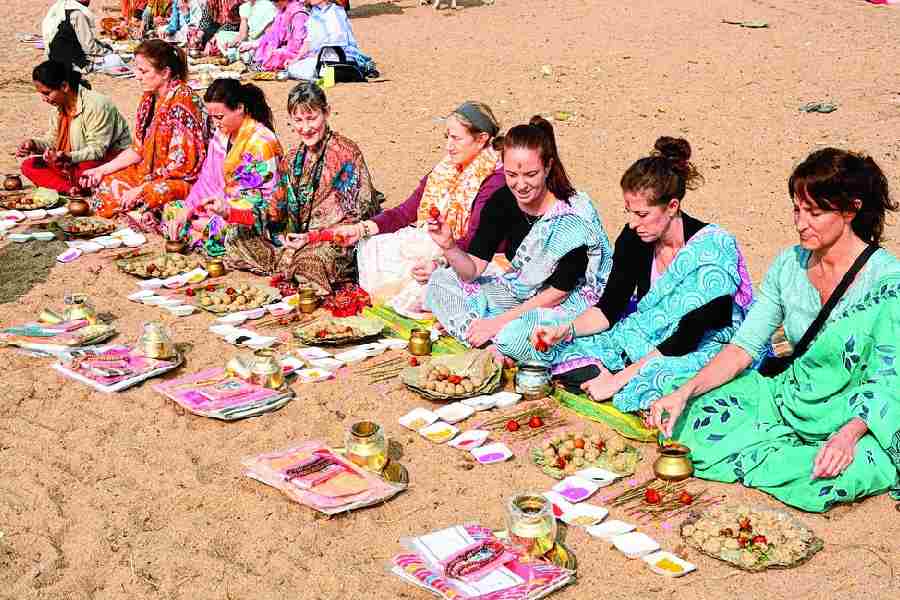Among Hindu rituals, pind daan is particularly important, because it is believed that this earthly practice ensures peace for ancestors. There are especially holy locations where oblations can be made next to a river, such as Gaya, Varanasi and Haridwar. Lakhs of people, predominantly men, visit Gaya for pind daan. For the last couple of years, however, some priests have been offering online pind daan for those who find it difficult to be present physically at the holy place. This rather dramatic incursion of modernity into the sphere of ancient belief and practice has naturally given rise to controversy. Many priests feel that online rituals are against the scripture. Most pandas are strongly against it, apparently because it is not traditional, but their opposition is hardly surprising. With pind daan turning digital, they would lose their control of the city and their power over their patrons, who are completely dependent on them for directions, sometimes for travel and accommodation, and for being taken to priests for the ritual. Praying for the peace of ancestors, often after the death of the father or grandfather, creates a lucrative network of services indispensable to the visitor.
It may be of some account that there was no digitisation at the time of the scriptures, so how the sages may have responded to the possibility of online rituals remains a moot point. Distance pind daan is not exactly like distance education; the debate around it is unlikely to be easily settled. Distance education, too, is considered a last resort. The basic question is, can an ancestor’s thirst be quenched by water visible online? (Does this mean that their spirit is accessible from the holy place, but not from where the praying descendant is located?) Or, for example, can watching the journey to a pilgrimage site online give a person the same blessings as someone who has gone through the blood, sweat and tears of visiting it? A holy place is supposed to be exactly that, a site of holiness. Carrying out rituals miles away after paying a priest who guides the patron online subtracts the place from the equation.
What the issue comes down to for the person wishing peace for his forefathers is belief. If faith dictates that a ritual is useless if not performed at the location, then nothing short of a visit will do. Or a relative or a friend must be authorised to perform the ritual in the right place. But online pind daan allows believers to perform the ritual themselves in whatever corner of the world they inhabit without travelling to Gaya. Technology is an enabler: it enables traditional practices to acquire the means of modernity. Gaya will show if the traditional will win over the modern or the other way round. Modernity is at an advantage: AI priests, too, may take over when the clientele become unmanageably large for the busiest priests.










